In May the Austrian Film Museum aimed to listen for consonance between the two oeuvres of Jacques Tourneur and his father Maurice Tourneur. The season’s curator, Christoph Huber, sat down with Patrick Holzapfel to discuss the relations between father and son.
Patrick Holzapfel (PH): I’d like to begin our conversation on Maurice and Jacques Tourneur by asking a question. It may be one of the easiest or one of the hardest questions to answer. During the retrospective I managed to see many double features made up of one film by Maurice and one film by Jacques Tourneur. Based on the the program notes and the topical connections, I perfectly understood why you chose to combine certain films. And yet I had the impression that there was no real connection between the films apart from that. Serge Daney has written that Jacques made films reacting to his father’s work, trying to do things differently. What is your view on this and what was your motivation in combining those films? Was it your goal to show parallels or differences?
Christoph Huber (CH): There are different approaches to different double features in this retrospective. With some, there is a rather clear understanding that Jacques continues on a path his father embarked on: for instance, the way Experiment Perilous takes up motifs of Trilby some three decades later or the way both establish a (notably very different) type of personal poetry that nearly defies conventional narrative notions in The Blue Bird and I Walked With a Zombie. Then there are those doubles where both father and son arrive at somewhat similar strategies almost contemporaneously: the flashback-propelled stories of doomed passion in Impasse des deux anges and Out of the Past or the striking use of “neorealist” settings and subversive elements in Le Val d’enfer and Berlin Express, which to a certain degree qualifies as a Hollywood Trümmerfilm. But others are programmed against each other, and there it is about oppositions, or maybe – to build on Daney – Jacques’ counter-reactions.
An example would be Avec le sourire and Stars in My Crown. The first is a contemptuous masterpiece of cynicism, the latter is Jacques’ most humanist film. In cases like this, the programming decision aimed to set up deliberate contrasts between father and son, while also keeping in mind that both films were made at crucial points of their respective careers, so there’s also a “filmographic” mirror effect. So on the one hand we have Stars in My Crown, one of the most touching cinematic pieces of Americana ever made, which was Jacques’ only real passion project if we take his word for it. He said it was the one film he really wanted to make. He fought for it, while throughout the remainder of his career he presented himself as somebody willing to direct literally whatever comes along. And it cost him a great deal in the end, because he accepted a very low wage in order to make it and then, owing to this fact, remained underpaid in the Hollywood system. At least that’s what he claimed, and ultimately we don’t know if it was for good or bad – after all, cheaper work often allowed for more freedom. But it was undeniably one of the turning points in Jacques’ career.
Similarly, for Maurice, Avec le sourire seems to embody his acceptance of the realities of French filmmaking. He left Hollywood in the 1920s, disappointed. It was hard for him to work in a producer-controlled system, and although he may have hoped otherwise, it wasn’t much different in France after he returned. Apparently, the pressure was not as high as it had been in Hollywood: looking at the films of the early 1930s, one has the feeling he was able to develop his ideas of cinema a bit more freely again. To me it seems that at first there was some hope, some sparkle of innovation. Yet, in the mid-30s this was no longer the case – the quality of the films was not suffering, but the enthusiasm and even a certain measured optimism gradually evaporated. I guess at some point he had come to accept that he will be an eternal craftsman within the industry, not the freely creative artist he envisioned in his early writings on the possibilities of film. And this disillusionment can be felt very clearly in Avec le sourire. Like Julien Duvivier’s Panique ten years later, it is a quite venomous repatriate film, not only for Maurice, but also for Maurice Chevalier, who had just come back from Hollywood. It is a superb comedy, but founded on pure cynicism; the French charm projected is a false front, and Chevalier is its perfect embodiment. I always found him a bit sleazy, so when he plays a flattering romantic hero in Lubitsch or the geriatric bon vivant in Vincente Minnelli’s Gigi there is something disturbing to it that remains unacknowledged by most, which seems strange to me. But Maurice really focused on this unctuous aspect of Chevalier in Avec le sourire, it seemed to suit him: The film is about bringing the uncanny lurking behind the friendly facade out in the open, revealing a sour, sarcastic aftertaste beneath the frothy veneer.
So it seems clear that Stars in My Crown and Avec le sourire talk about very different things. And I don’t see a need for the double features to work as reinforcement every time, quite the contrary. Sure, the son has learned something from his father. He reacted to it. In some cases, this was about very practical decisions, like Jacques’s vow to privilege his actors, quite unlike what he’d seen his father do. But the net result of the relationship between the two Tourneurs does not add up to a neat sum, so it would be wrong to propose a homogenous series where film A by Maurice always corresponds exactly with film B by Jacques. Yet I think that both filmmakers, each in his own way, take up certain influences and ideas and we can see how differently they work with them. This connection obviously extends beyond the filmic work – surely it was crucial that Jacques had access to Maurice’s extensive and idiosyncratic library at a very young age, which planted the seeds of certain (shared) interests. Furthermore, in the way Jacques worked within the system we can also detect a strong reaction against his father. He famously stated that he accepted every single offer during his career and was perfectly fine working as a good cog in the machine. That is very much the opposite of his father who, after his arrival to the US in the 1910s, strived to become an artist with an independent vision and finally threw in the towel in the 1920s because the US system changed, the Hollywood studio/producer era began and they started to interfere directly with his work.
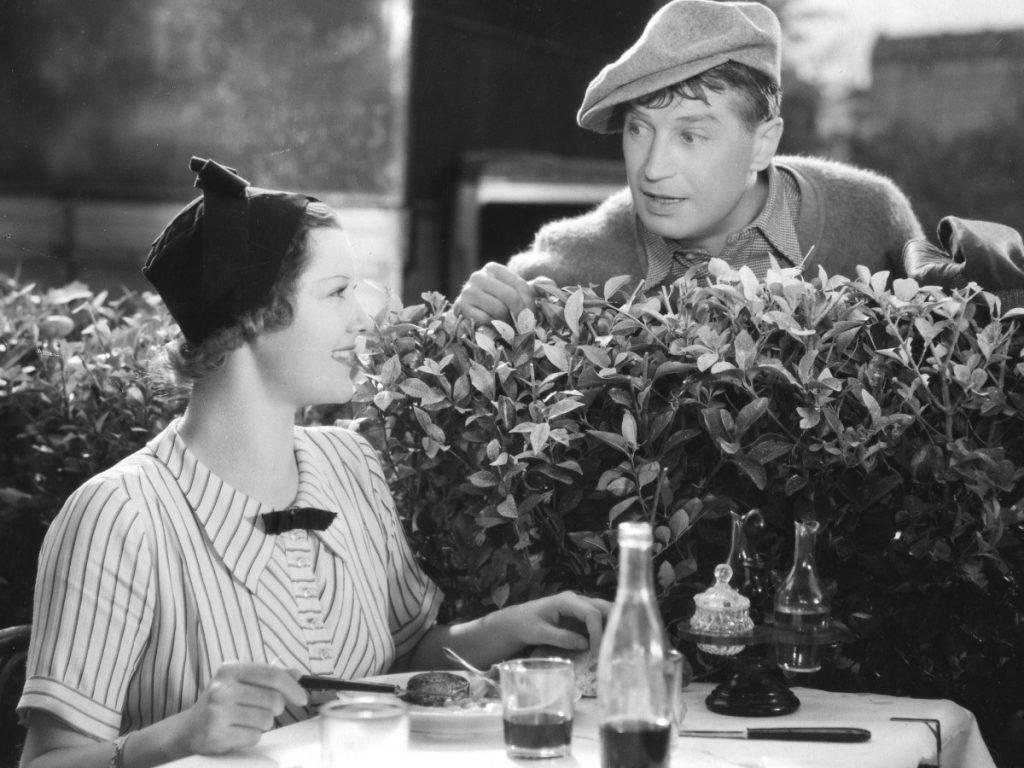
PH: I think somebody came to the set one day, somebody from production, and Maurice dismissed him, not knowing who that person was supposed to be. Then MGM called him and told him that they had sent this person. Still, the next day Maurice dismissed the intruder again – and when the guy reappeared on the third day, Maurice just left the set and never came back again.
CH: Which in itself is an exit worthy of a big Hollywood production. But going back to the connections (and differences) between father and son. In my opinion, Jacques is one of the best actor’s directors. He always told his actors to underplay and it works beautifully. We find the subtlest of gestures in his films, everything is very nuanced. Jacques also categorically stated that, for him, the work with actors comes first, which might seem unexpected given that his critical standing as an auteur is based on his style. But for him the work with the actors was the most important aspect of filmmaking. The opposite is true of his father. He quickly established himself as a formalist of unbelievable quality, and at times one almost has the impression he saw his actors as just another part of the production design, another element to be moulded into his form. Of course, he still had to deal with actors and he got some very good performances out of them, but there are many stories about how he didn’t like that at all. Some of those are the remembrances of his son who felt that Maurice’s approach was wrong.
So this is a good example where we can see that Jacques reacted to his father in a contrary way in his own filmmaking. Nevertheless, there are many shared thematic tendencies and of course they are related to Jacques being Maurice’s son. For example, they both loved to read books about science, especially what Jacques liked to call the supernatural. If we look at a double feature like La Main du diable and Night of the Demon, it becomes very apparent that they work within similar thematic fields. They both bring their cinematic specialties to bear, which makes a crucial difference. I guess this describes the core idea behind the retrospective. It is not about a dozen monolithic double features asserting thematic or stylistic parallels, but about presenting a polyphony with/in those two directors. It is important to note that neither of the two can be reduced to what we may think of them based on their reputation and their most accessible films. In the case of Jacques, many still regard him as just a mysterious horror director with one or two noir classics in his oeuvre.
PH: For me, the greatest difference between father and son lies in their sense of time. No matter how supernatural or uncanny his works might be, with Maurice I always find myself in the immediate presence of the setting and characters, whereas with Jacques there is always a tang of the past. In the beginning of a film, Maurice tells us: “Look here, something is happening.” Jacques tells us: “Look, something has happened here.”
CH: Yes, that is true. It becomes very noticable when we look at the horror elements. Maurice was interested in the spectacle of horror from early on, whereas Jacques deepens the genre with philosophical and psychological interest. Maurice wants to place you in the presence of fear, as demonstrated in his early short Figures de cire, while the effectiveness of Jacques’ horror comes from understatement and implication. He knows that by underplaying and keeping things offscreen he can conjure up much bigger horrors in the imagination. This strategy partly had to do with budgetary reasons, but it was also a philosophy, both for Jacques and Val Lewton, the refined producer of his early classics like Cat People, who clearly seemed a kindred soul. Jacques famously stated that he actually believes in the supernatural. I cannot imagine Maurice making such a statement, as there is always a certain rationality at work in his films. jacques, on the other hand, quietly draws you into the abyss. You can also sense it from the general mood of their films. Just look at the double feature mentioned above: La Main du diable actually has many cheerful moments, it is a work of exuberant fantasy despite some of its darker aspects. Night of the Demon does not lack humor, especially when it comes to the villain, but the overall experience is that of a slow floating into a deadly vortex. It is too bad that Maurice’s early Edgar Allen Poe two-reeler Le système du docteur Goudron et du professeur Plume has not survived: According to contemporary descriptions it contains a blood-under-the-door scene just like that famous moment in Jacques’ The Leopard Man. This should have made for a fascinating comparison. If certain of Maurice’s silents weren’t lost, the retrospective might have looked different: In his celebrated 1920 version of Treasure Island, he cast a girl as Jim Hawkins – one can only speculate on how it might have made for a perfect double feature with Jacques’ Anne of the Indies. And I would have loved to include more of Jacques’s strange, beguiling late adventure films and Westerns, but in the end many of them couldn’t make a fitting double with Maurice’s work.
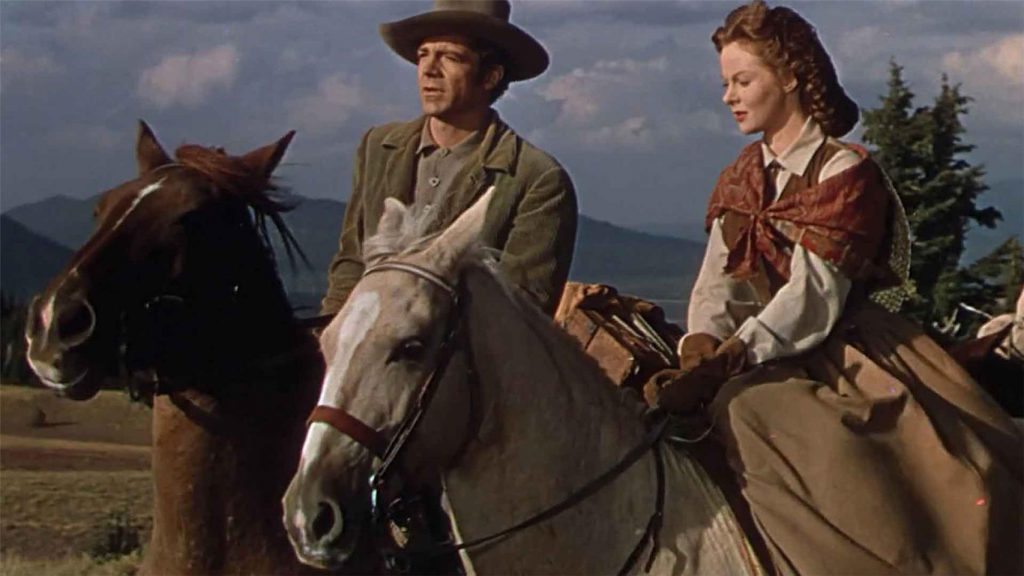
PH: What surprised me when seeing the films was that I expected Maurice’s films to come across as much colder and more aloof than Jacques’ work. Yet, I found Maurice to be surprisingly warm, in a strange way …
CH: Yes, one can feel that after a time … I guess that in the beginning Maurice’s style seems more striking than the emotions, but they are there and quite pronounced throughout if one looks close enough.
PH: There is a desire in his films. Impasse des deux anges, for example, is also a film about someone who wants to love but can’t.
CH: Yes, the protagonist fails – and that makes it such a great film of its time. In Impasse des deux anges we can find a mood of defeat and motives that were very popular in French post-war cinema. The war might have been over, but the clouds of twilight still hung over the images. There is desire in the film, but it’s a thwarted desire that runs very deep. Maybe this film, his last, is an indicator of the new direction Maurice might have taken, opening up again after the war. But this also remains speculation since Maurice had to quit directing so suddenly due to his injuries in an absurd car accident. He wanted to continue, but it was physically impossible. So, during the last decade of his life, he found different ways of spending his time, including translating American crime novels into French (he asked fellow expatriate director Robert Flory for recommendations from overseas – “the harder, the better”). But, as a filmmaker, maybe he would have found new ways to transform into something more than a mere craftsman. Still, the issue of coldness and warmth is interesting. Of course, even in Maurice’s earliest shorts, the perfection produces a sort of coldness, but it is not true that he is not interested in people at all. Maybe he was not interested in the actors per se, but he is fascinated with certain characters.
Just think of Last of The Mohicans. We can even find characters that seem to be the director’s alter egos, as in Accusée, levez-vous! The film is set in the theatre environment Maurice grew up in, and especially in the first half we can see his huge pleasure in reviving this world through cinema.
PH: The Blue Bird is also a very playful film.
CH: Oh yes, this film is actually totally crazy if you ask me. In that regard it is Maurice’s most radical film. He even painted the intertitles himself and managed almost every stage of the production. I think this was the closest he came to his idea of creating a complete artwork. Which is also the reason we showed it together with I Walked with a Zombie. In many ways the latter is the most accomplished expression of Jacques’ total art, although I am sure ever-modest Jacques would have abhorred a term like this. In it Jacques goes furthest in liberating himself from narrative shackles. Both films could be seen as showcases on how to create poetry within the Hollywood system. This ability is also something that Maurice and Jacques share. Both are classical auteurs regarding their craftsmanship. In the 1910s Maurice probably thought he could have a different life as a filmmaker because the studio system, with all its restrictions, did not take hold until the 1920s. And yet, even later on he managed to leave his personal signature in films made by and for an industry, just like his son. But that period of his work had been neglected for a long time. I always found it bewildering how little had been written about Maurice’s French films seeing as his silents always had a legendary status. And if you look at those French films you see how consistent he is, how he always returns to the same topics and similar stylistic ideas.
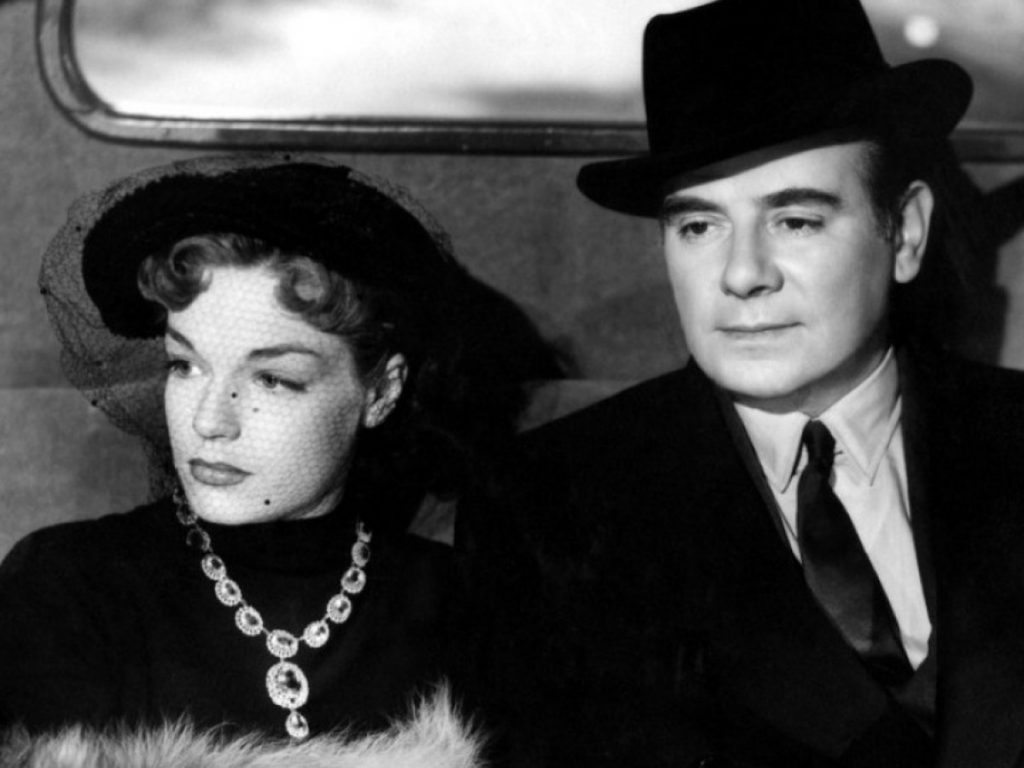
PH: Still, Maurice’s actual successor in cinema would be Clarence Brown, don’t you think?
CH: Yes, and one should definitely take a closer look at Brown at some point. He is a very exciting director in his own right, possibly even one of the neglected greats, like Henry King. Brown always said that Maurice Tourneur was his idol, even his god. Still, if we were to make a retrospective pairing films by Brown and Maurice Tourneur I don’t think the outcome would be as fruitful. That is because Brown specialized strongly in pastoral films and women’s pictures, which is just one Tourneur aspect. Brown did not work in as many genres, so it might end up being a very straightforward and limited selection showcasing the influence, but not much more.
PH: So this idea of how an auteur and craftsman works in different genres creates an intense dialogue between Maurice and Jacques?
CH: Exactly, because Jacques is a man who did everything, just as Maurice ended up doing. However, what Brown achieved in the 1930s may have been what Maurice probably dreamed of. He became a flagship director at MGM and had a lot of artistic freedom. He also seemed to be a much more affable person than Maurice and he was capable of dealing with the pressure and restrictions of the studio system. Jacques once remarked that his father couldn’t stand it if there was someone on set above him, somebody with the power to disagree and object to his ideas.
PH: What I find a bit dangerous in the combination of both directors is their fondness for shadows. It seems very obvious – but then I think it is a stylistic device used by most great filmmakers in their respective times. Seeing the films side by side might suggest such a superficial connection. I overheard a lot of people talking about it after the screenings.
CH: I am with you on this one. You are of course right, the use of shadows is striking in the work of both directors. Maurice also employs a number of distinctive silhouette effects, especially in his silent film, which is sometimes echoed – very faintly – in Jacques. Maurice had an unbelievable gift as a creator of compositions. So when I started watching Maurice’s films, I often asked myself if these elements are something Jacques took over from his father. But, of course, in the end these are really just “normal” means, and not characteristic of an individual director from a film-historical point of view. It should also be pointed out that Maurice is one of the defining directors for the language of cinema in the 1910s, so he influenced many others. If you look at how far his filmmaking had already progressed by 1915, you can understand why he was soon considered one of the greatest directors after Griffith, along with DeMille and maybe Ince. Almost every later filmmaker has drawn from that, and we are not speaking only about the shadows. Nevertheless, Jacques is truly one of the great directors of shadows because he is always drawn to the obscure, to the unexplainable, to the things that have to remain in the shadows and can only be hinted at.
PH: With Maurice, certain moments or scenes stay with me more than whole films. I am thinking of Lorna Doone. There are scenes that completely stunned me either because of their beauty or because of their violence. With Jacques, the films seem to be much more balanced and harmonious in their obscurity.
CH: In Jacques’ films everything menacing happens almost unconsciously. Maurice is much more expressive in that regard. The outrageous massacre scene in The Last of the Mohicans immediately springs to mind. Or, since you brought up Lorna Doone, that staggering moment in which hand tendons are severed by mere teeth. At the same time there are very lyrical moments in both films. Jacques would not go to such extremes. Speaking of the lyrical aspect, I find it interesting that Maurice is not as precious in his naturalism as, say, Griffith. He is not monomaniacal about “rebuilding” nature, whereas Griffith, as a friend of mine remarked, strove for a chiseled beauty that is reminiscent of a gazebo. You can feel the breath in Maurice’s images, a breath that extends to Clarence Brown and Jacques. Maurice’s compositions may be perfectly constructed, but they are not overly perfected, there is a modern element in Maurice, a surprising openness.
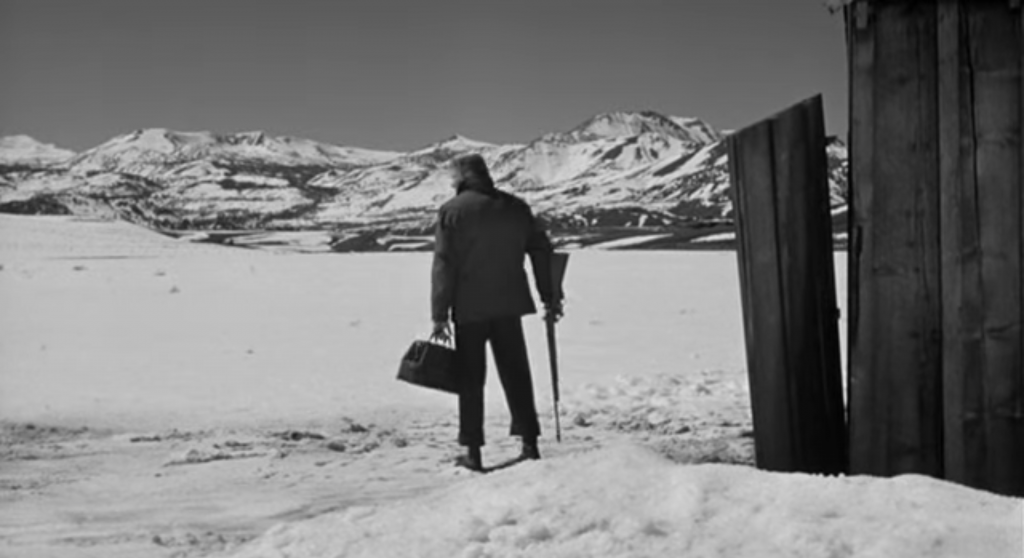
PH: I also wanted to ask you about Maurice’s film Obsession which is not a part of your selection. In his wonderful book on the cinema of Jacques Tourneur, Nightfall, Chris Fujiwara wrote about the film and its possible autobiographical connections with Jacques’ cinema. He claims that we may be able to learn something about Jacques’ childhood from this film by Maurice. Why didn’t you show the film?
CH: For one thing, I found the film rather mediocre compared to other works by Maurice. Perhaps I also expected too much, since I was hoping to find a key work there based on the mention in Chris’ book. So in the program made up of shorter films by Maurice I decided to present another mid-length film instead of Obsession, namely Lidoire, which is also something very special in French comedy. That was an element I wanted to stress more because Maurice did make quite a few comedies. But, on further reflection, I do agree somewhat with Chris. Obsession might tell us something about Jacques’ childhood, or at least about a difficult father-son relationship. There are stories that Jacques recounted, for instance that about being a small kid and having to go down dark corridors in which his father had hidden the Christmas presents. Jacques claimed that this was his first encounter with fear. In his book, Chris openly admits that a great deal of what he could say about the father’s work (and the relation to Jacques) would be just speculation, as he had not been able to see many of Maurice’s films by then. It’s only now that we can really start to think about those questions because of the increased visibility of Maurice’s work. And finally, to be quite honest, I couldn’t come up with a film by Jacques that I would consider a productive counterpoint with Obsession. In the end, I am also not a hundred percent sure about the possible autobiographical aspects there. In Jacques’ films, one always has the feeling that he manages to express his inner emotions, whereas with Maurice I am not sure that his films enable me to really understand the man behind them. Maybe this is where the distinction between perceived coldness and warmth lies.
PH: Something I feel very strongly in both directors is a sense of resignation. In Jacques’ films this resignation seems to be entrenched in bitterness and whiskey; one doesn’t really see clearly anymore but drifts through life and death. In Maurice’s films, I have the feeling it is more sarcastic, clearer in its bitterness.
CH: It is resentment, absolutely. It grows in his work with time. There is – not always, but frequently and ever more pronounced – a bad taste, something bitter, almost evil, that is totally lacking in Jacques’ films. With the son, it is more like a basic fatalism: As if what he had expected from the beginning – or rather not expected, like success – inevitably came true in the end.
PH: The character who best exemplifies that feeling for me is Dana Andrews in Night of the Demon. It is not only that he carries this basic conflict of rationality versus the supernatural. It is how he deals with it. He is not quite there anymore.
CH: It is very good that Dana Andrews acted in quite a few of Jacques’ films. I find him to be an ideal fit for the director, with his natural air of passivity and defeat. Dana Andrews is always great in my opinion, but especially with filmmakers like Jacques Tourneur or Otto Preminger, who brought out the best in rather reticent actors, because they were perfect for their projects founded on understatement (Tourneur) or “neutral” objectivity (Preminger). You can clearly see things going on in their faces and bodies, yet it seems far from perfectly clear to themselves, or rather their characters. They have a nondescript layer to them. At the same time, it is very subtle. That is really tailor-made for Jacques. And Dana Andrews is possibly the acteur fétiche of that type in classical Hollywood.
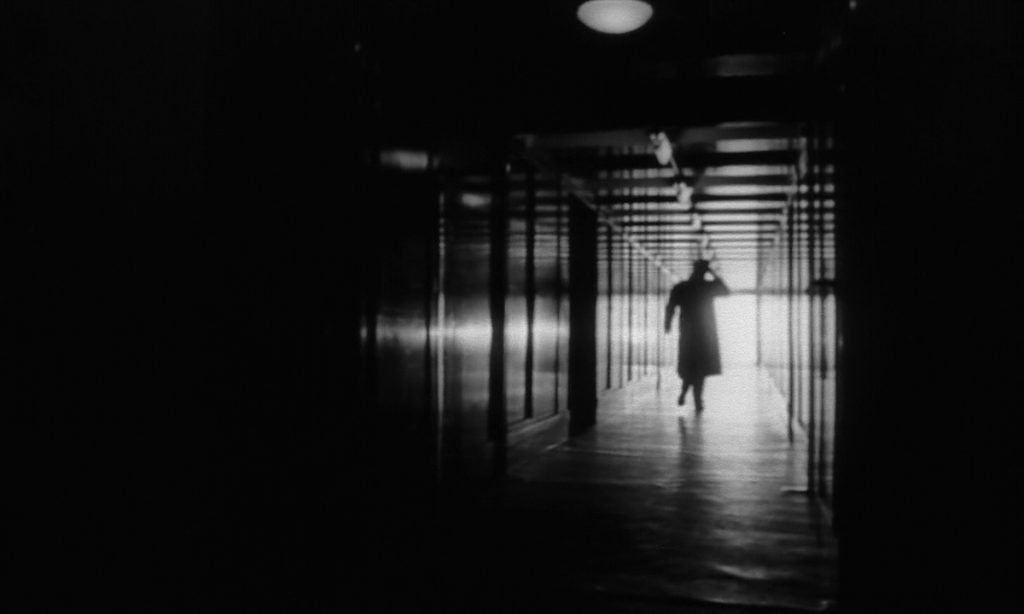
PH: He also has no charm. He has something else.
CH: I watched Canyon Passage again and at first glance Dana Andrews is a very bad fit for the “heroic” character in this film. However, this is what it is all about: Canyon Passage is a Western in which everything is shifted and suspended. This is also the reason the film was programmed together with The Last of the Mohicans. Both films show images of America clearly made by non-Americans. Jacques very often worked on those American images from an oblique angle, and I find that very fascinating. I am thinking of Stars in My Crown again, which is a film almost moving into John Ford territory, but then it is also very different. That is partly due to the protagonist, who is a pastor and brings certain “atypical” elements with him, but there is also a pronounced metaphysical element in the film …
PH: And the pastor’s counterpart, the doctor, would also be a very different character in a film by John Ford …
CH: Indeed.
PH: The conflicts in Jacques’ films already exist in the characters before the film begins.
CH: The scripts do feature the necessary conflicts, as if to assure the audience that “this is actually a normal film,” but in truth it is not like that because the conventional ways of treating conflict are mostly omitted. In fact, the conflict between the pastor and the doctor in Stars in my Crown is the same conflict Dana Andrews carries within him in Night of the Demon, the difference between a rational and what you can call a mystical, or religious, or supernatural approach. Yet in Stars in my Crown you can never say that the doctor represents only the rational side of the conflict and the pastor only the other side. These ambivalences are a big part of Jacques’ cinema. Things get mixed up and clear answers are suspended, but almost subconsciously.
PH: If we look at a film like Accusée, levez-vous! again, I have the feeling that Maurice is capable of transporting those ambivalences too. But he uses them in a more effective, more narrative fashion than his son. It is a film where Maurice really plays with his characters and our expectations. I found the element of whodunit in the film very modern. It works even today with our crime film and crime series infested minds.
CH: And in Accusée, levez-vous! we can learn a lot about Maurice’s efficiency. The film is clearly structured in two halves. The world of the court of the second half mirrors the world of theatre in the first part with all its spectacle, lies and calculation. Still, everything is very neat although it does not lack complexity, but it clearly adds up in the end. When Jacques blends these different layers, something like a vague undertow leading into darkness emerges; something elusive that is actually the center. It may be the key to what makes Jacques one of the great directors. I am immediately thinking of Out of the Past as well (and just for instance).
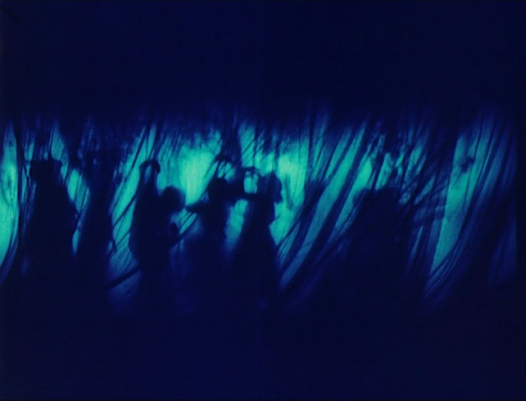
PH: Yet there is a character like the barkeeper of the theatre canteen in Accusée, levez-vous! He is not a very clear figure and to me he seems like a character we could also find in a film by Jacques. I am with you concerning the basic structure of the film, which differs greatly from anything Jacques would have made. But when it comes to certain characters or situations … I don’t know.
CH: Barkeepers and those kinds of “transitional” characters are very typical for Jacques. Those people without a place of their own. Characters full of doubt instead of, as is often the case with Maurice, characters with a lot of self-confidence. It is very hard to find a hero in the usual sense in the cinema of Jacques Tourneur. Even in a film like Nightfall, one of Jacques’ more optimistic films, the protagonist is rather passive, everything happens to him all the time. This is the reason I combined the film with Alias Jimmy Valentine, which charts a similar dilemma, but with a notably active protagonist. So they were put together not only because of the noir elements in both films but because they make these differences visible. In Maurice’s film the protagonist makes clear decisions, he is a very decisive character – almost anti-Jacques. In hindsight I have to admit there would have been an even better pairing with Alias Jimmy Valentine than Nightfall. Namely They All Came Out, Jacques’ first US feature and the only film I programmed without having seen it before. But I felt it had to be there because it marks Jacques’ transition from short film director to feature filmmaker – it was an extended take on the Crime Does Not Pay short because the studio heads were impressed with what Jacques had made.
So it seemed to belong together with the short programs dedicated to both Jacques and Maurice, which were also indispensable because both made some of their best work in the short form. I was really happy to finally see They All Came Out, which is a very fascinating film despite some limitations, some of which are clearly connected to its step-by-step production history. But I was also flabbergasted because I realized that it is almost a remake of Alias Jimmy Valentine. Both films show a man becoming a criminal who gets reformed. Both films have a “message,” in both cases undoubtedly connected to the permission to shoot in actual prisons (Sing Sing in the case of Maurice, Alcatraz and others in Jacques) and with official support. So both films insistently praise the greatness and goodwill of the judicial system of the USA, which makes for a certain shared weakness – they are remarkable crime films, but have to play the double role of propaganda pieces for the state and its seemingly infallible reform program. So the connections are really striking in this case, but we can also undeniably say that the most pronounced similarities are a matter of coincidence, and dictated by production circumstances rather than influences. But then there are also deeper connections, which demonstrate both the common ground and disparities between Maurice and Jacques.
PH: When thinking about those connections on a more basic level, we can probably safely say that there are conscious and subconscious influences for every filmmaker. In the case of a family relation, a subconscious influence seems to make perfect sense.